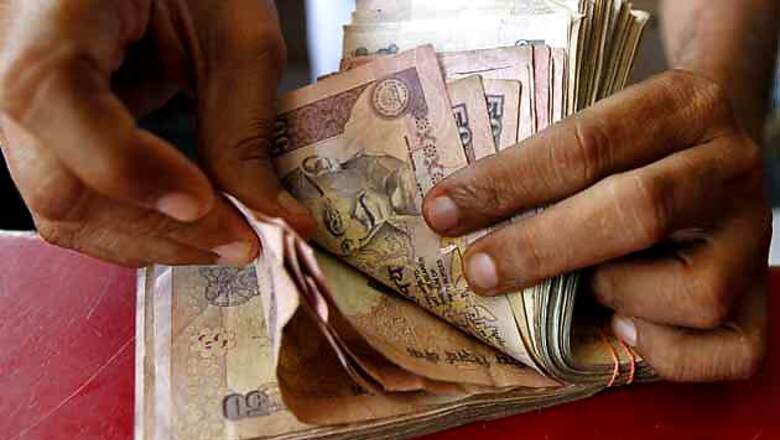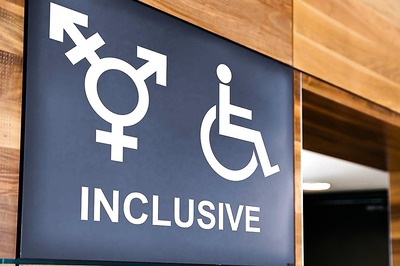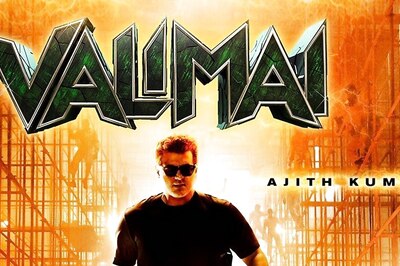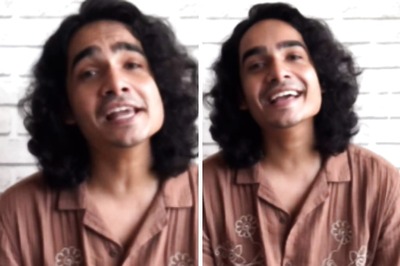
views
New Delhi: While complimenting the Narendra Modi government for big-bang reform announcements, President of PHD Chamber of Commerce and Industry Alok B Shriram said that the forthcoming Union Budget 2015-16 is being formulated in a benign macro-economic environment at domestic and international level after many years. The economy is looking up and the GDP growth rate has improved significantly.
Shriram said the key drivers of economic growth would be creating more and more employment opportunities with increasing the share of manufacturing in GDP to 25 per cent.
He gave suggestions for creating employment with growth and competitiveness of the manufacturing sector and said:
1) Around 50 crore people in India are under 20 years of age and, thus, will be under the working age in the next 20 years, implying a need for the creation of about 10 lakh new jobs each month to provide them gainful employment. However, less than 10 per cent of the workforce at around 5 crore is skilled only. So, in this regard, manufacturing sector must grow fast with a sizeable contribution in the overall economic growth.
2) For the growth of manufacturing sector, the MSMEs segment should be looked in seriously as they have immense potential to create millions of new employment opportunities due to labour intensive production processes. It should be turnover basis; Rs 1 crore to Rs 25 crore for Micro enterprises, Rs 25crore to Rs 100 crore for Small enterprises and Rs 100 crore to Rs 1000 crore for Medium enterprises.
3) Employment generating schemes would be critical to absorb vast pool of the young population. Vocational training at school level would foster employability and address the demand supply gap. There is also an urgent need to integrate vocational education with professional and technical education through a proper framework.
4) The Budget must make significant allocations to the primary education so that the resources reach the marginalised sections of the society. Overall expenditure on education sector must not be less than 6 per cetn of the GDP with defined outcomes and deliverables.
5)Boost entrepreneurial growth; entrepreneurship-led economic growth will act as a catalyst not to just boost innovation but also create employment. The innovation fund should be given profound importance and it should be managed by the professionals to create efficiency and efficacy of the enterprises.
6) The new company law enacted in 2013 treats small, medium and large companies on same footing. The same level of compliance for MSMEs as large companies is going to cause huge burden. It requires several rounds of "overhaul" as several anomalies need to be still addressed.
7) The inverted duty structure, which is a major deterrent for manufacturing in India, should be completely corrected as domestically-produced goods cost more than imported ones.
8) The high transaction costs, both in terms of time taken and the money involved, are adversely impacting manufacturing competitiveness and overall business performance, the Budget must provide provisions for reducing transaction costs. Radical decisions are needed on the time taken for paper work and permissions.
9) Enhance the excise limit for MSMEs manufacturing units. The small scale units are enjoying Excise Limit exemption of Rs 1.5crore on sale ever since 1998. Since then there has been a drastic change in manufacturing costs, the limit of Rs 1.5crore is not at all in consonance with current manufacturing costs and therefore the excise exemption limit for the MSMEs may be factored on the basis of difference between the WPI of 1998 to 2014 and the tax exemption limit may be enhanced appropriately.
Shriram expressed that the Budget must focus for improving the standards of living including basic amenities such as education, health, food, housing and safety for all and skill youth of the nation for a better tomorrow and make "Sabka Saath Sabka Vikas" a reality.
Making his demands clear from the upcoming Budget, senior Vice President of the PHD Chamber Mahesh Gupta said that inducing demand scenario would be critical to refuel our economic growth trajectory. The ease of doing business must be focused seriously as India's ranking in the world tables is not comfortable at 142nd in the league of 189 nations. The present tax regime is not conducive for fostering growth, thus, there is an urgent requirement to make our taxation system simplified, rationalised with long term stability.
He suggested to provide fairly substantial relief to individual taxpayers in terms of increasing the income tax slabs so that more disposable income is available in the hands of individual taxpayers.
He also demanded focus on the health scenario of the nation by enhancing the income tax exemption limit of Rs 15,000 for medical reimbursements to at least Rs 30,000 as it will help the people to tackle the ever increasing expenses on medicines.
He asked for the implementation of a well designed Goods and Services Tax (GST) at the earliest, by reducing state border taxes and it will have the important consequence of creating a pan India common market for goods and services, which will be critical for our growth in the coming times.
Lastly, the rate of MAT should below 10 per cent to provide a fillip to manufacturing. The ceiling of Dividend Distribution Tax (DDT) should be at 12.5 per cent. The developers and units in SEZs should be provided relief from MAT and DDT.
Expressing his views, PHD Chamber Vice President Gopal Jiwarajka said that infrastructure sector should be looked in seriously as we are lagging behind ot only with advanced economies but also with emerging and developing nations. Maintaining fiscal deficit at around 4.1 per cent would also be a major crucial factor for macro-economic stability, going forward. The existing schemes of subsidies and social programmes need to be made more efficient and defined outcomes based. The government should consider consolidation of social welfare programs across Ministries and Departments.
He said the country need atleast 9-10 per cent of GDP infrastructure investments every year to meet up the international standards in the next 20 years. An overall re-hauling of transport system needs to be done and there needs to be an increase in capacity of railways with modernisation through state of the art technology.
Though the government has provided very lucrative FDI limits to attract foreign investments but creating a conducive business environment at domestic level would be critical to attract more and more domestic and foreign investments, he said.

















Comments
0 comment